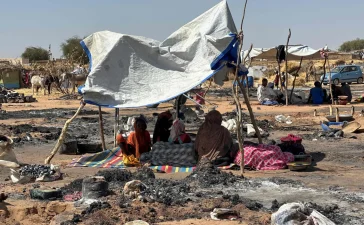Ethiopia’s government is defending a maritime access deal signed with Somaliland, a self-declared republic, despite Somalia declaring the agreement “null and void.” In a statement, Ethiopia asserted a “longstanding cooperation agreement” with Somaliland and emphasized ongoing consultations for mutual benefits. Ethiopia maintained that the Memorandum of Understanding (MOU) would not affect any party or violate laws.
The deal, inked by Ethiopian Prime Minister Abiy Ahmed and Somaliland President Muse Bihi Abdi, grants Ethiopia naval and commercial sea access on lease for 50 years. It also includes the prospect of Ethiopia recognizing Somaliland as an independent country, a point not explicitly confirmed or denied by Ethiopia. The agreement enables Ethiopia to establish a permanent naval base and maritime services in the Gulf of Aden.
Somaliland, operating independently since 1991, seeks international recognition. However, Somalia insists that Somaliland remains part of its territory. The deal was met with strong opposition from Somalia, prompting the recall of its ambassador from Addis Ababa.
The U.S. expressed concern over the escalating tensions in the Horn of Africa and urged diplomatic dialogue. The State Department emphasized recognizing Somalia’s sovereignty within its 1960 borders. In Somalia’s capital, residents protested the deal, with the Minister of Interior rejecting Prime Minister Abiy Ahmed’s actions.
Ethiopia emphasized its commitment to avoiding confrontation and promoting mutually beneficial solutions. In Hargeisa, rival demonstrations both supported and opposed the deal. The Somaliland cabinet endorsed the agreement, asserting Somaliland’s independence and control over its land, sea, and air.
Somalia called for “appropriate action” from the head of the East African Inter-Governmental Authority on Development (IGAD) and criticized an earlier statement for not condemning Ethiopia’s alleged violation of sovereignty. The European Union stressed the importance of respecting Somalia’s unity, sovereignty, and territorial integrity for regional peace and stability.







